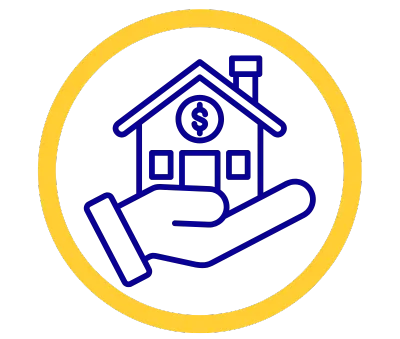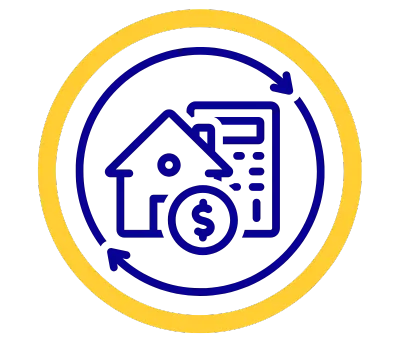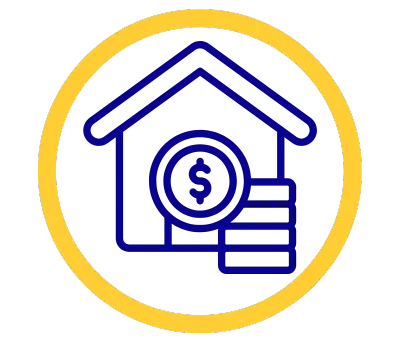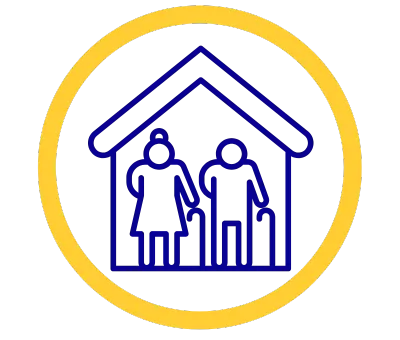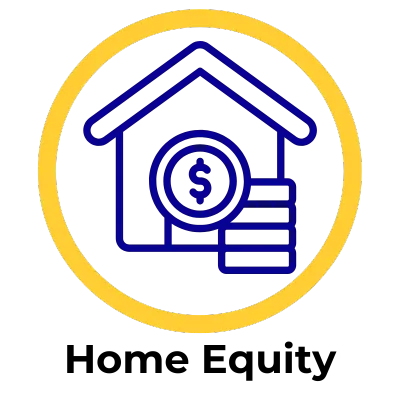Get Approved for an FHA Loan—Faster, Easier, and with Lower Costs!
Lower Down Payments: Qualify with as little as 3.5% down, making homeownership more affordable.
Fast Pre-Approval: Get pre-approved quickly so you can shop with confidence.
Better Interest Rates: We help secure the most competitive FHA loan rates available.
Streamlined Process: Our experts handle paperwork and guide you every step of the way.
Credit-Friendly Options: Flexible credit requirements make approval easier.
Low Closing Costs: We negotiate better terms to keep more money in your pocket.
Find Your Perfect Mortgage Match – Let’s Get Started!
Start with our Mortgage Approval Tool!
What Are FHA Loans?
FHA loans are government-backed mortgages insured by the Federal Housing Administration, designed to make home buying more accessible with low down payment options—as little as 3.5%—and flexible credit requirements compared to conventional loans. These loans are popular among first-time homebuyers and those with less-than-perfect credit, offering an affordable path to homeownership while including mandatory mortgage insurance that protects lenders in the event of default by incorporating the cost into your monthly payments.
How Does a FHA Loans Works?
Loan Insurance
FHA loans are backed by mortgage insurance provided by the Federal Housing Administration, which safeguards approved lenders against potential losses if a borrower defaults. This added protection helps lenders offer more flexible terms, making homeownership more attainable for borrowers.
Borrower Requirements
To qualify for an FHA loan, borrowers must meet specific criteria including a minimum credit score and a down payment as low as 3.5% of the home’s purchase price. These requirements are designed to help first-time buyers and those with less-than-perfect credit secure affordable financing, though standards can vary over time.
Approved Lenders
Obtaining an FHA loan requires working with an FHA-approved lender. These lenders have been thoroughly vetted by the FHA, ensuring they follow strict guidelines when issuing loans, which in turn provides an added layer of security and trust for homebuyers.
Mortgage Limits
The FHA establishes borrowing limits that vary by county and are updated annually. These limits ensure that loans remain within affordable boundaries, helping borrowers finance homes in diverse markets while maintaining responsible lending practices.
Mortgage Insurance Premiums
FHA loans include two types of mortgage insurance premiums: an upfront mortgage insurance premium (UFMIP) that is typically financed into the loan amount at closing, and an annual mortgage insurance premium (MIP) that is paid monthly. These premiums help protect lenders and contribute to more accessible loan options.
Property Appraisal
Before approving an FHA loan, the property must undergo an appraisal by an FHA-approved appraiser. This process verifies that the home meets strict safety, security, and soundness standards, ensuring that the investment is both secure and of adequate quality.
Loan Terms
FHA loans offer a variety of term options, typically ranging from 15 to 30 years. Borrowers can choose between fixed-rate and adjustable-rate mortgages, allowing them to select a repayment plan that best fits their financial situation and long-term goals.
Closing the Loan
Once all eligibility criteria and property requirements are met, and the FHA-approved lender completes the necessary underwriting process, the loan moves to closing. At this stage, the final documents are signed, and the funds are disbursed so the borrower can complete the home purchase.
Occupancy
FHA loans require that the property be used as the borrower’s primary residence. This occupancy requirement ensures that the FHA loan supports genuine homeownership, helping families secure a stable and long-term living environment.
Features of FHA Loans

Low Down Payments
FHA loans require a minimum down payment of 3.5% for borrowers with credit scores of 580 or higher, which is significantly lower than the typical 20% for conventional loans.
Flexible Credit Requirements
Borrowers with lower credit scores can qualify for an FHA loan. The minimum credit score is 500 with a 10% down payment; however, lenders may require a higher score.
Mortgage Insurance
Borrowers must pay an upfront mortgage insurance premium (UFMIP) and an annual mortgage insurance premium (MIP), usually added to the monthly payment. This insurance protects the lender if the borrower defaults.
Loan Limits
FHA loans have maximum borrowing limits that vary by location and are recalibrated annually based on the median home prices.
Property Requirements
Homes financed with FHA loans must meet specific safety, security, and soundness standards. An FHA-approved appraiser must inspect the property.
Assumable Loans
FHA loans are assumable—if you sell your home, the buyer can take over your loan under the same terms (subject to lender approval), which is a selling point in high-interest rate environments.
Use for Various Property Types
FHA loans can be used to purchase various properties, including single-family homes, 2–4-unit properties, condos, and manufactured homes, provided the borrower makes the property their primary residence.
Seller Contributions
Sellers can contribute up to 6% of the home sale price toward the buyer's closing costs, easing the upfront cash needed.
Streamline Refinancing
For those with an existing FHA loan looking to refinance, the FHA offers a 'streamline refinance' program that simplifies documentation and underwriting.
Benefits of FHA Loans
Low Down Payment
FHA loans require a minimum down payment of 3.5% for borrowers with a credit score of 580 or higher. This is significantly lower than the typical 20% required for conventional loans, making homeownership more accessible for many people.
Easier Qualification
The eligibility requirements for an FHA loan are generally less stringent than for conventional loans. This includes lower credit score requirements and more lenient debt-to-income ratios, which can help those with less-than-perfect credit histories.
Competitive Interest Rates
FHA loans often come with competitive interest rates, which can result in lower monthly payments and more affordable financing over the life of the loan.
Higher Debt Ratios Allowed
FHA loans may allow higher debt-to-income ratios compared to conventional loans, which can be beneficial for buyers with existing debts.
Assumable Loans
FHA loans are assumable, meaning that if you sell your home, the buyer can take over your existing loan terms, which can be an attractive selling point if interest rates have risen since you took out the loan.
Financial Help for Repairs
The FHA 203(k) loan program allows borrowers to finance both the purchase of a home and the cost of its rehabilitation through a single mortgage. This can be particularly advantageous for purchasing fixer-uppers.
Seller Concessions
FHA loans permit sellers to contribute up to 6% of the home's sale price toward the buyer's closing costs, which can reduce the amount of cash needed to close.
Gift Funds Allowed
FHA loans allow 100% of the down payment to come from gift funds, making it easier for family members to help each other purchase a home.

Our Service Commitment

Get Expert Advice every time from a licensed loan officer with a suite of products to choose from.
Our team strives to deliver excellence. Contact us day or night with any mortgage questions—we’re here when you need us.
Working with us or just thinking of it, we will always be honest and transparent. No sales targets means way better service!
No Hidden Fees: We believe in clear and upfront communication about all costs associated with your mortgage.
Tailored Solutions: Our advisors work closely with you to find mortgage solutions that are customized to your financial situation.
Available When & Where
You Want!
Across multiple states, our licensed loan officers will help you from application to funding and beyond.
We work on your schedule. With streamlined technology and dedicated support staffing, your mortgage request is always our priority!

Book an Appointment
See What Our Clients Say About Us!
RateShop Mortgage LLC is a licensed mortgage broker in FL, GA, and TX.
In accordance with federal law, we do not engage in business practices that discriminate on the basis of race, color, religion, national origin, sex, marital status, or age (provided you have the capacity to enter into a binding contract), nor do we discriminate because any part of your income is derived from public assistance programs, or because you have, in good faith, exercised any right under the Consumer Credit Protection Act. The Federal Trade Commission, Equal Credit Opportunity Division, Washington, DC 20580, is the federal agency responsible for administering these laws.
Copyright 2025. All Rights Reserved Rateshop Mortgage LLC
#1 Voted Mortgage Calculators in Canada
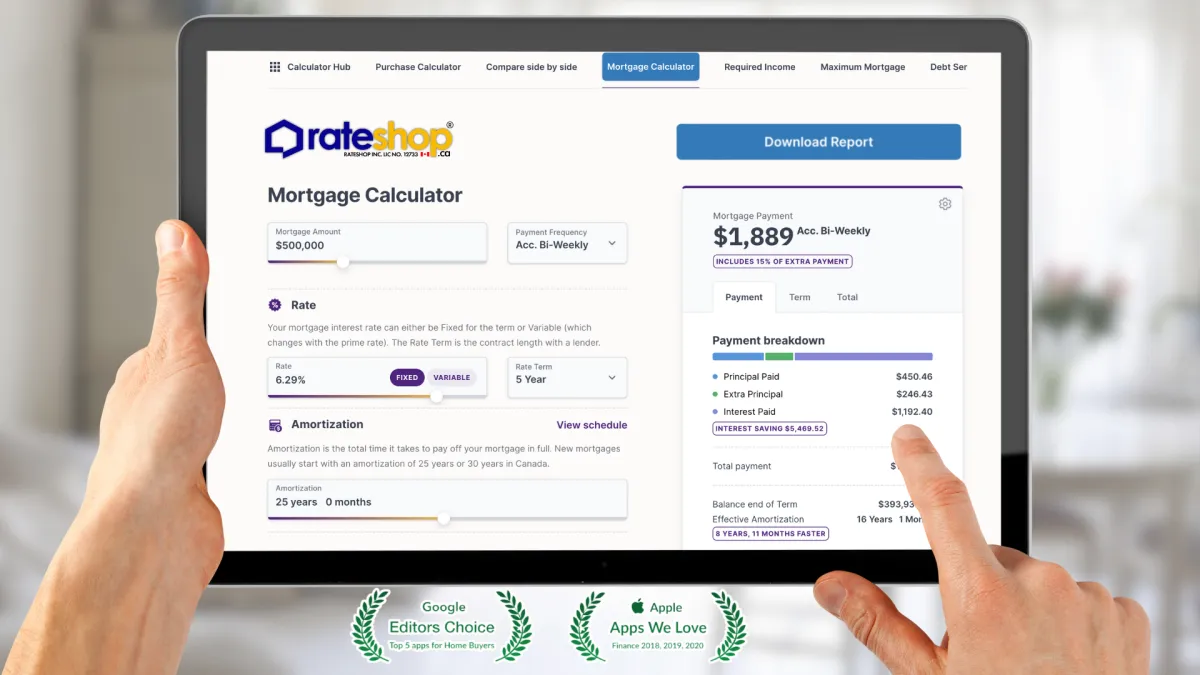
Our Mortgage Experts
Dylan James
Mortgage Agent Level 1
Abdoulaye Sow
Mortgage Agent Level 1
Michael Le Chi
Mortgage Agent Level 1
Heith Gharib
Mortgage Agent Level 1
Sara Fresco
Mortgage Agent level 1

